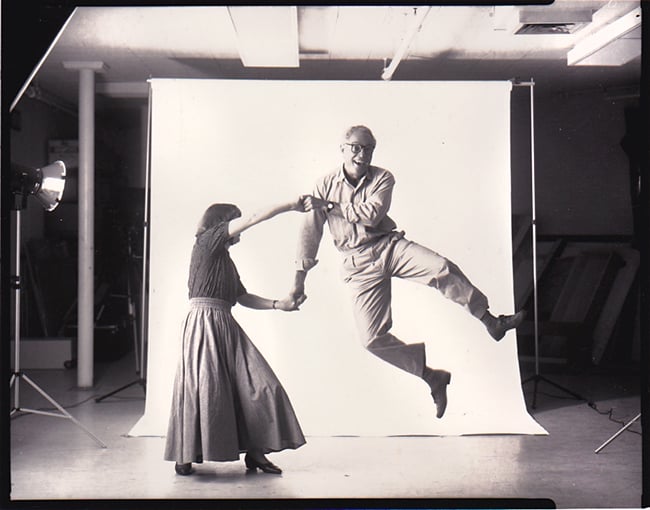
September 3, 2013
Niels Diffrient: In Praise of a Well-Lived Life
In praise of a well-lived life

Courtesy Sally Anderson Bruce
How do we sum up a life when it’s over? When that great big room in Ridgefield, Connecticut is filled with signs of the life we’re here to memorialize, how can words do justice to the man who once worked here? How can friends and family say anything of meaning about Niels Diffrient, who worked almost to the last minute of his long life, then was suddenly gone at the age of 85?
Just saying that he took out more than 70 patents—and all the design innovation that number implies—is impressive, but it says little about the man he was. He was a curious, funny, intense, articulate, friendly, talented, and generous guy. He was a lively storyteller. He loved to dance and ice skate. But for me, it was his sense of humility and humanity, which he found (and never lost) growing up on a Mississippi farm, that I will miss most. “Humility” is a word rarely used to describe designers these days. And that’s too bad. Bad for us and bad for design.
Heartfelt memories, filled with funny tales, some on the raunchy side, were met with smiles, laughter, and affection. As I listened and watched, I kept thinking about Niels running up the stairs that lead to his office—eager to show his life-size drawings and rough but highly accurate prototypes—during my recent visit in the spring, when remnants of a late snowstorm were melting into the ground.
But on this hot and humid July day, as the sun beat down on the emerald-green lawn and the air was thick inside and out, only half of the team that once occupied this great room was present. Helena Hernmarck, Mrs. Diffrient and much-admired tapestry artist, hosted the proceedings in the room that houses her looms and where an enormously tall wall’s shelving is filled with her colorful yarns, with Niels’s Jetsonian fan (a prototype) whirling overhead.
We heard the word “trust” and how it must be part of any creative process, as well as our lives: trust that others will do the right thing, trust that failure will lead to new insights, trust in your own ability to find the best and most fruitful way to solve a problem. We heard about Niels’s abiding interest in psychology, in addition to his well-documented contributions to harmonizing the human body to the spaces and tools we come in contact with, commonly know as ergonomics.
Just then, I remembered a recent editorial meeting when we discussed what the new, twenty-first-century ergonomics might be in the age of ubiquitous computing, and concerns about the harmful effects of sitting in front of our computers for hours. “What,” we asked ourselves, “would Niels say?”





